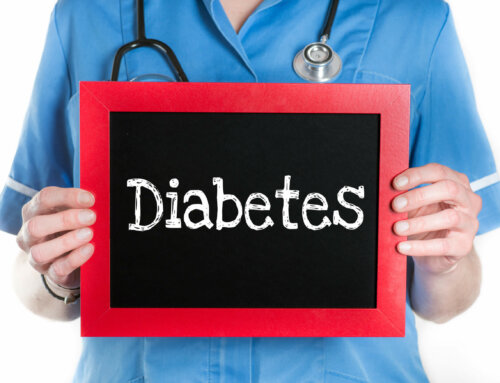About 10 percent of women in America have polycystic ovarian syndrome commonly referred to as PCOS. Of the more than 5 million women with PCOS, more than half of them will have pre-diabetes or diabetes by the time they reach the age of 40. Learn more about the connection between PCOS and diabetes.
What is Polycystic Ovarian Syndrome?
Polycystic Ovarian Syndrome causes an imbalance of female sex hormones. It is also the leading cause of female infertility. A woman’s ovaries have follicles that hold the eggs. When the egg is mature, it is released by the follicle to travel to the uterus to be fertilized. For those with PCOS the follicles bunch together into large cysts. The eggs mature but the follicles do not open up to release them for fertilization. PCOS is referred to as an insulin resistance spectrum disease as is diabetes.
Symptoms of PCOS
Women with PCOS usually have irregular menstrual cycles or none at all. They may experience heavy bleeding, pelvic pain, and painful periods as well as cysts on the ovaries and high levels of androgen hormones such as testosterone. Other symptoms include acne, excess body or facial hair, and dark patches of skin in their body folds especially on the back of their neck referred to as acanthosis nigricans. Women may have related conditions such as sleep apnea, an elevated BMI, high blood pressure and/or high cholesterol. These health conditions are also associated with diabetes. PCOS can occur in women as young as 11 as well as women who are post-menopausal.
How is Polycystic Ovarian Syndrome Diagnosed?
Often women with PCOS are unaware they have the condition. There is no simple test to diagnose women with PCOS. Doctors often perform a series of tests to eliminate other conditions such as adrenal gland disorders, thyroid problems, and early menopause. The doctor performs a pelvic exam. An ultrasound might be done to check for cysts on the ovaries and look at the lining of the womb. Body mass index (BMI) may be measured to determine if the woman is overweight. Blood tests can be done to check glucose, insulin, and hormone levels. Polycystic Ovarian Syndrome causes insulin resistance which is associated with type 2 diabetes.
The Connection between PCOS and Diabetes
Studies are being done to determine if genetic factors can cause PCOS. Lifestyle factors might be another risk factor though nobody knows the exact cause of this condition. Many women with PCOS are obese or overweight. It has been shown losing just 5 percent of your total body weight may relieve the symptoms of PCOS. Body weight may also be part of the connection between type 2 diabetes and PCOS. Studies have shown women with type 1 diabetes have an increased risk of developing PCOS which suggests insulin could also be a major factor connecting these two conditions. The raised insulin levels associated with diabetes can boost testosterone levels which can be a factor behind PCOS.
Treating PCOS with Lifestyle Changes
No cure exists for PCOS but proper management is essential to prevent diabetes, heart disease, and other health conditions. Women who are overweight are encouraged to lose up to 10 percent of their existing body weight. Blood sugar levels can be reduced by eating balanced meals and reducing your intake of processed foods and sugary snacks. Exercising daily reduces the risks associated with PCOS. When starting, try walking for 10-20 minutes daily and slowly increase your distance and speed. Use an Omron pedometer to keep track of your progress. Women with PCOS should quit smoking and reduce or eliminate their intake of alcohol.
Medication and More to Treat Polycystic Ovarian Syndrome
Birth control pills may be prescribed by your doctor to lower androgen levels, minimize acne breakouts, and regain better control of your menstrual cycles. Medications that can lower insulin resistance and glucose production may be prescribed such as Metformin. A pill with progesterone may be recommended such as Provera, or anti-androgen medications. Solutions for women who want to get pregnant can include fertility medications and in vitro fertilization (IVF). Laparoscopic surgery referred to as ovarian drilling may be helpful. Doctors may recommend bariatric surgery for PCOS patients who are morbidly obese. Women with feelings of depression, stress, and anxiety are typically referred to a counselor and might be prescribed anti-depressants.
Developing the right lifestyle habits can reverse the effects of PCOS and reduce the risk of health conditions such as diabetes, high cholesterol, and heart disease. Women diagnosed with PCOS and/or diabetes should work with a dedicated health care team and get regular exams. The right eating plan and exercise regime can be major keys to achieving optimum well-being.







Leave A Comment